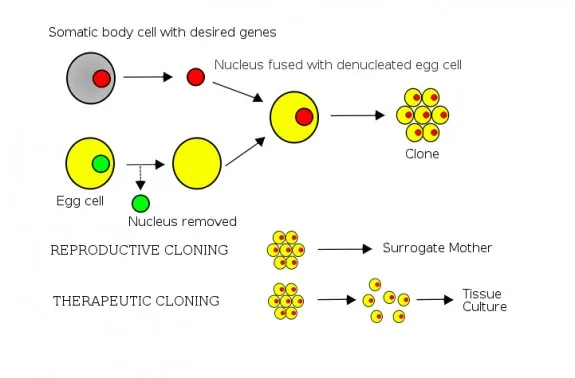Mouse Cloned From Its Parent’s Blood
White blood cells flowing in its parents blood provided the genetic material needed to clone
/https://tf-cmsv2-smithsonianmag-media.s3.amazonaws.com/filer/2013062710302906_27_2013_mouse.jpg)
When the book of Leviticus and the fifth book of Moses said that blood “is the life of all flesh” (Leviticus 17:11; 14), and that “the blood is the life” (Deuteronomy 12:23), they probably had no idea just how literal those words would become. A team of Japanese researchers have just announced that they have cloned a healthy, reproductively-viable female mouse from just the blood of her parent, reports Helen Briggs, for the BBC.
It’s a development that seems more at home in the realm of fantasy—a dark necromancer raising life from a drop of blood—than science. But, in reality, the development is just a small, but potentially important step, in the development of cloning. Mice are already regularly being cloned worldwide. Mouse clones are incredibly important for scientific research—since each mouse used in a study is pretty much genetically identical, it means that any changes seen in mouse behavior are probably because of whatever the scientist is testing (a diet, a drug, an exercise program, whatever).
The scientists, says the BBC, used blood from a mouse’s tail to derive the genetic components they needed to make their clones.
The team, led by Atsuo Ogura, of Riken BioResource Center in Tsukuba, took blood from the tail of a donor mouse, isolated the white blood cells, and used the nuclei for cloning experiments, using the same technique that produced Dolly the sheep in Edinburgh.
The process, known as somatic cell nuclear transfer, involves transferring the nucleus from an adult body cell – such as a blood or skin cell – into an unfertilised egg that has had its nucleus removed.

According to the BBC, “he female mouse lived a normal lifespan and could give birth to young, say the researchers.”
More from Smithsonian.com:
Endangered Or Extinct Animals Won’t Be Saved By Cloning
Can Cloning Giant Redwoods Save the Planet?
/https://tf-cmsv2-smithsonianmag-media.s3.amazonaws.com/accounts/headshot/smartnews-colin-schultz-240.jpg)
/https://tf-cmsv2-smithsonianmag-media.s3.amazonaws.com/accounts/headshot/smartnews-colin-schultz-240.jpg)